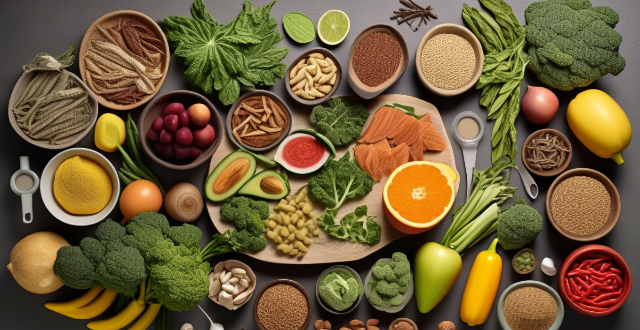Strategies for eating a more plant-based diet include embracing whole foods, experimenting with alternative proteins, getting creative with meal planning, learning about nutritional balance, educating yourself, supporting sustainable practices, and connecting with others. These steps can help you transition to a healthier and environmentally friendly way of eating while ensuring you receive all the necessary nutrients.

Strategies for Eating a More Plant-Based Diet
Transitioning to a more plant-based diet is not only beneficial for your health but also for the environment. Here are some strategies to help you incorporate more plant-based meals into your routine:
Embrace Whole Foods
- Focus on fruits and vegetables: Aim to fill half your plate with a variety of colorful produce. These are rich in essential vitamins, minerals, and fiber.
- Choose whole grains: Opt for brown rice, quinoa, barley, and whole wheat bread instead of refined grains.
- Include legumes and beans: Lentils, chickpeas, kidney beans, and black beans are great sources of protein and fiber.
Experiment with Plant-Based Proteins
- Try tofu and tempeh: These are excellent soy-based proteins that can be used in many dishes.
- Incorporate nuts and seeds: Almonds, cashews, chia seeds, and flaxseeds are nutrient-dense additions to meals.
- Explore seitan and textured vegetable protein (TVP): These are meat alternatives made from wheat gluten and soy, respectively.
Get Creative with Meal Planning
- Meatless Mondays: Start by designating one day a week where you eat only plant-based meals.
- Veganize your favorite recipes: Substitute animal products with plant-based options in your go-to dishes.
- Plant-based snacking: Snack on fresh or dried fruits, veggies with dip, and homemade trail mixes.
Learn About Nutritional Balance
- Ensure adequate protein intake: Combine different plant proteins to get all essential amino acids.
- Consider supplementation: Vitamin B12, iron, calcium, and omega-3 fatty acids may need to be supplemented in a vegan diet.
- Stay hydrated: Drink plenty of water and herbal teas to maintain proper hydration.
Educate Yourself
- Read labels: Look for hidden animal ingredients in processed foods.
- Understand food substitutions: Know how to replace eggs, butter, and dairy in recipes with plant-based alternatives.
- Seek out resources: Join online communities, read books, and watch documentaries to deepen your knowledge about plant-based eating.
Support Sustainable Practices
- Buy organic and local produce: This supports environmentally friendly farming practices.
- Reduce food waste: Plan meals ahead to make use of all parts of the plants you buy.
- Choose minimally processed foods: Less processing often means less environmental impact.
Connect with Others
- Join a plant-based community: Share tips and recipes with others who have similar dietary interests.
- Attend potlucks or cooking classes: This is a great way to learn new techniques and try new foods.
- Partner with a like-minded friend: Having a buddy to share the experience with can make it more enjoyable and easier to stick to.
By incorporating these strategies, you'll be well on your way to enjoying the benefits of a more plant-based diet while ensuring you're getting the nutrients your body needs.